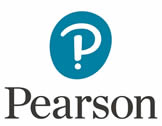
Devi coordinare una riunione che si terrà in lingua inglese e hai paura di fare brutta figura? Niente panico, ti aiutiamo noi!
Gestire le interazioni tra un gruppo di persone e comunicare contenuti importanti nel contesto di un meeting aziendale può essere un compito difficile, fonte di stress soprattutto se la riunione si svolge in una lingua che non conosci alla perfezione.
I nostri consigli
I tre consigli di base che ti possiamo dare sono:
- Utilizza un lessico semplice e chiaro. Non cercare di costruire frasi troppo complesse: ricorda che la lingua inglese prevede frasi brevi e sintassi pulita, e non ama incisi e subordinate (tra l’altro, è anche meno intransigente sulle ripetizioni rispetto all’italiano).
- Aiutati con supporti visivi (slide, grafici e immagini): può essere utile preparare una presentazione degli argomenti che saranno affrontati nel meeting.
- Ripassa il lessico specialistico e la terminologia propria dei temi su cui verterà la riunione. Se vuoi approfondire l'inglese corretto da utilizzare nel contesto lavorativo, ti consigliamo la nostra Guida completa al Business English.
Prima di dare inizio al meeting, avrai inviato ai partecipanti l’agenda, l’ordine del giorno, ovvero l’elenco degli argomenti da discutere. Avrai anche incaricato un tuo collaboratore di stendere il verbale (to take the minutes). Fatto questo, la riunione può avere inizio. Ecco alcune frasi utili da cui prendere spunto.
Starting
- Hello, everyone. Thank you for coming today.
- Well, since everyone is here, we should get started.
- Thank you all for coming at such short notice.
- I really appreciate you all for attending today.
Introducing yourself and new people
- My name is John Smith and I’ve worked at … for over twenty years
- Perhaps I should first introduce myself and my team. I’m
- Please join me in welcoming…
- We're pleased to welcome…
- Sheila, would you like to introduce yourself?
Stating objectives and agenda
- I've called this meeting in order to...
- By the end of this meeting, I'd like to have a clearer idea about our marketing strategy.
- We have a lot to cover today, so we really should begin. I’d like to begin by outlining…
- OK, everyone. Let’s get the ball rolling. Come and sit down and we’ll start the meeting.
- The first item on the agenda is to decide on a new supplier
- Let’s get down to business. Let me first give you an outline of…
- We will hear a short report on each point first, followed by a discussion around the table.
Changing topic
- We're running short on time, so let's move on.
- I really think we've spent enough time on this topic. We have to go on to the next item.
- This leads directly to the next point
- I think we could spend all day discussing this, but there’s a lot to cover
Asking for suggestions and feedback
- Mark, could you please tell us how … is progressing?
- Mary, have you managed to complete the task?
- I’d like to know what your views are on … Please feel free to give me any suggestion
- John, could you please give us a few details on the new project?
- I’d really like everyone to present his point of view
- Are there any other comments?
- Would you like to add anything, Susan?
Answering questions
- So you’d like more information about… Is my understanding correct?
- I’m sorry, if I understand your question correctly, you’re interested in…
- Perhaps I wasn’t clear enough, let me clarify that
- You might be right. Nonetheless, the current situation is a bit different
- Can you explain what you mean, please?
- What makes you feel like this?
- Correct me if I’m wrong, but what you are saying is…
Se vuoi nel fra tempo prova a metterti alla prova con uno dei nostri test gratuiti online:
Expressing your opinion
- If you want my honest opinion, I think that…
- I strongly believe that…
- I’m positive that…
- It seems to me that…
Expressing agreement
- So, we’re all in agreement on this
- Ted, I agree with you to a certain point
- I think we’ve finally reached a consensus on this issue
- I absolutely agree with you. This is why I think we should…
- I’m with Peter on this.
- That’s an excellent point Frank, I totally agree with you on that.
Expressing disagreement
- I understand what you are saying, however…
- Hmm, I’m not sure whether it’s possible.
- I don’t think I can agree with you.
- I’m not sure it’s the best idea
- I’m sorry, but I just can’t agree.
- I’m sorry but I think you may have that slightly wrong
- From our perspective, it’s a little different. Let me explain.
Interrupting
- May I have a word?
- If I may, I think...
- Excuse me for interrupting, but I think we’ve lost the point.
Asking for clarification
- Could you explain to me how that is going to work?
- I'm afraid I don't understand what you’re getting at.
- Honestly I don't see what you mean. Could we have some more details, please?
Giving suggestions
- So, I suggest…
- At this point, I strongly recommend…
- Why don’t we….?
- How about…?
Thanking participants for attending the meeting
- I'd like to thank John and Paul for coming over from London.
- Thank you all for attending.
- Thank you all for participating, it was a pleasure being here today.
Ending
- In conclusion, I’d like to ask you to join us downstairs and…
- To conclude our meeting, let me just mention that there is more material waiting for you on this topic
- We’ve come to an end. I invite you to send us your ideas and suggestions.
- If no one has anything else to add, then I think we’ll wrap this up.
- I declare the meeting closed. See you next week. Bye!
Niente panico, quindi! Adesso hai una buona cassetta degli attrezzi per gestire al meglio la tua riunione in inglese.
Se vuoi migliorare il tuo Business English, scopri il nostro corso English Fit for Business per non farti rimanere impreparato:






